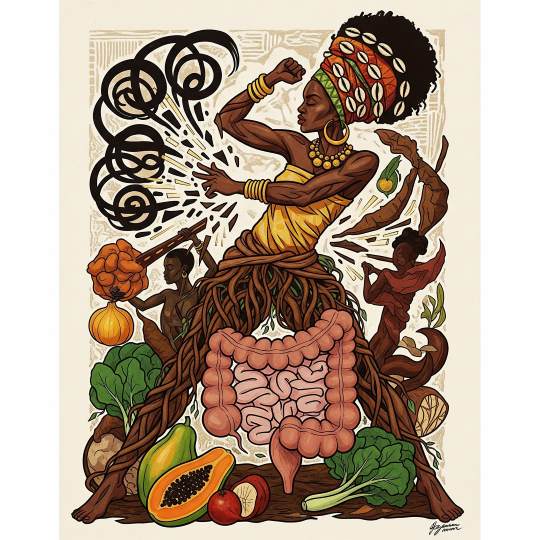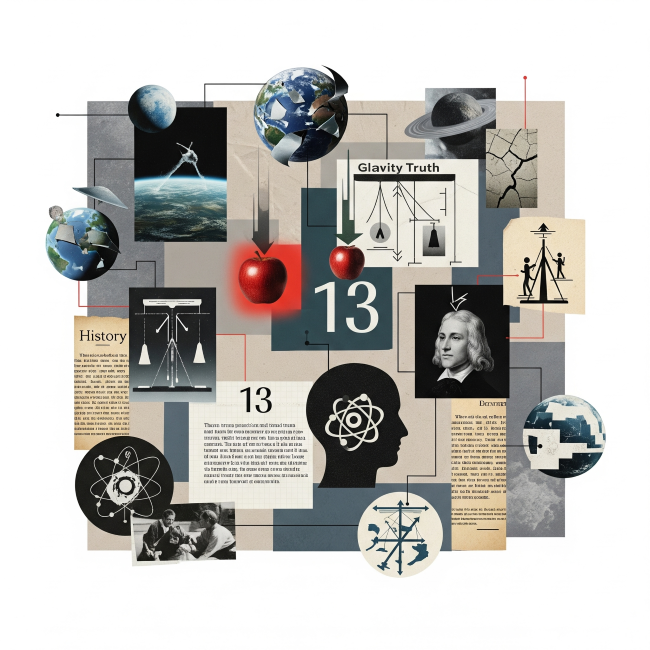Fighting Constipation the African Way

In a world overrun by pharmaceutical solutions, the quiet wisdom of traditional diets often goes unheard. Yet across Africa, where ancestral practices still shape daily life, food continues to function not only as sustenance but as medicine. This is particularly true when addressing a common yet under-discussed ailment: constipation.
While many turn to fiber supplements, stimulant laxatives, or gut-cleansing fads, many Africans rely on natural rhythms and ingredients—available in any open-air market or village kitchen—to restore digestive harmony. A simple, consistent regimen centered around soaked dates, zobo tea, papaya, oranges, cloves, yogurt, and lime water, offers a surprisingly effective and deeply human approach to fighting constipation. It is a method rooted not in haste, but in the belief that healing comes through balance, hydration, and a deep relationship with food.
The Gentle Force of Dates and Zobo Tea
Image Credit: Unsplash
The process begins in the evening, when the body starts winding down and preparing for rest—and reset. A warm cup made from dates soaked in water, mixed with zobo tea (hibiscus tea), becomes the first step in this nightly digestive ritual.
Dates are more than a sweet, chewy treat. In traditional diets across the Sahel and the Maghreb, dates have long been prized for their medicinal qualities. Their secret lies in their high soluble fiber content—primarily pectin and beta-glucan—which draws water into the colon, softens stool, and makes it easier to pass. But there’s more: dates contain natural sorbitol, a sugar alcohol that has a mild osmotic effect, gently encouraging the intestines to contract. Unlike synthetic laxatives, which often cause dependency or discomfort, dates do their work silently, with the rhythm of nature.
Zobo tea, made by steeping dried hibiscus petals, adds another dimension. It’s tart, vibrant, and rich in antioxidants like anthocyanins. Traditionally used across West Africa to cool the body and calm inflammation, zobo also serves as a mild diuretic—helping the body recalibrate its internal water balance. The warm liquid stimulates the stomach and intestine gently, laying the groundwork for a smoother digestive process by morning.
Soak About 20 Dates in a glass of water for 48 hours(keep it in a cool part and not a cold part of the fridge). Pour half of the date juice into your zobo tea, as the sweetener. Save the rest for later.
Clove: A Small Spice with Big Intention
Image Credit: Unsplash
About an hour after dinner—when the body is no longer digesting actively but not yet in rest mode—comes a small but powerful ritual: chewing three whole cloves. This act, though seemingly simple, carries deep physiological benefits.
Cloves contain eugenol, a compound that relaxes the smooth muscles of the gut and encourages enzymatic secretion. Traditionally used to relieve bloating and gas, cloves also activate the vagus nerve, which connects the brain and gut. The chewing stimulates salivation and digestion, signaling to the body that it’s time to complete the final stages of nutrient absorption and waste clearance.
Importantly, the cloves are not swallowed. Instead, they are chewed and spit out after releasing their potent oils. This ensures maximum effect without taxing the stomach. For many, this spice, small as it is, becomes a nightly check-in with the digestive system—an invitation to recalibrate and prepare for restoration.
Note that Eugenol, one of the main compounds in cloves, can act as a blood thinner, which can increase the risk of bleeding in people who take anticoagulant medications or have bleeding disorders.
A Morning Reset with lime-Sugar Water
Image Credit: Cleveland Clinic
Come morning, the first act of nourishment is a glass of warm water with 1 lime and a teaspoon of sugar. It is deceptively simple, yet deeply effective.
Warm water itself stimulates peristalsis—the wave-like muscle contractions of the intestines. The citric acid in lime increases bile flow, helps detoxify the liver, and creates an environment in the gut that is both anti-inflammatory and mildly antiseptic. The small addition of sugar does more than add taste; it offers a quick metabolic kick that activates digestion and boosts energy, especially after a night of fasting.
Unlike cold juices or coffee, which can shock the system into erratic action, this warm tonic encourages the digestive tract to open slowly and begin its day with grace.
Papaya(PawPaw): The Morning’s Enzymatic Broom
Image Credit: Unsplash
At breakfast, a generous helping of three medium slices of ripe papaya—known across much of Africa as pawpaw—takes center stage.
This tropical fruit contains papain, an enzyme that breaks down complex proteins and eases digestive workload. It’s especially valuable for those with sluggish digestion, bloating, or incomplete bowel movements. Just as importantly, papaya offers a combination of insoluble fiber and water, helping to form bulky, hydrated stool that moves easily through the intestines.
Across East and West Africa, pawpaw is often one of the first foods introduced to infants. That it also so effectively supports the adult gut is testament to its universal healing power.
Lunch: The Probiotic Power of Yogurt and Oranges
By midday, the digestive system is at its peak function—and lunch becomes a key opportunity to solidify progress. Here, a large orange (with pulp, not just juice) and a cup of natural yogurt make a functional pairing.
Oranges, particularly when the pulp is eaten, are rich in insoluble fiber. This helps add volume to stool and reduces transit time through the colon. Oranges also contain flavonoids and vitamin C, supporting immune function in the gut wall and reducing inflammation.
Yogurt introduces beneficial bacteria—lactobacillus and bifidobacterium—that help maintain a healthy gut microbiome. A balanced gut flora enhances nutrient absorption and promotes regularity, often addressing the root causes of chronic constipation rather than just its symptoms.
Together, yogurt and orange form a duo of fermentation and fiber, hydration and harmony, but make sure whatever yogurt you take contains Lactobacillus bulgaricus and Streptococcus thermophilus. You can find this out by reading the product information or placing a call to the manufacturers.
The Carbless Night: Lightening the Gut for Renewal
Dinner is not a time for heavy starches. In this method, carbohydrate-rich foods like eba, pounded yam, rice, and bread are avoided. These slow-digesting, low-fiber staples—while nourishing in moderation—can become burdensome at night, when the body's energy is focused on repair, not digestion.
Instead, the evening meal leans toward sweet potatoes, vegetables, broth-based soups, and lean proteins. This approach not only lightens the digestive burden but helps the gut rest and regenerate—essential for anyone seeking long-term digestive balance. It’s a nod to an old truth often forgotten in modern eating: the gut heals at night, not when it is busy processing late-night starches.
Water, Movement, and Rhythm
Though not tied to any one meal, hydration and movement are essential parts of this system. Fiber without water can backfire. To truly support digestion, 6–8 glasses of water should accompany the day’s meals and snacks. Light walking after lunch or dinner also helps stimulate peristalsis and supports metabolic flow.
Constipation is not just a failure of the gut—it is often a failure of rhythm. This African approach restores rhythm with ritual: warm drinks, mindful chewing, hydration, fiber, and functional foods that cooperate with the body’s natural cycles rather than override them.
Conclusion
In an age of urgency and overcorrection, the African method of fighting constipation is an act of restraint and trust. It says: you don’t need more medicine, or more shortcuts. You need water, warmth, time, and food that knows what to do.
There is beauty in the slowness of chewing cloves one hour after dinner. There is science in the simple fruit plate. There is healing in the quiet, predictable practice of eating with awareness and sleeping with ease.
Constipation may seem like a modern affliction, but the answer, perhaps, has always been there, waiting for us in the evening cup of zobo and the morning slice of pawpaw.
You may also like...
When Sacred Calendars Align: What a Rare Religious Overlap Can Teach Us

As Lent, Ramadan, and the Lunar calendar converge in February 2026, this short piece explores religious tolerance, commu...
Arsenal Under Fire: Arteta Defiantly Rejects 'Bottlers' Label Amid Title Race Nerves!

Mikel Arteta vehemently denies accusations of Arsenal being "bottlers" following a stumble against Wolves, which handed ...
Sensational Transfer Buzz: Casemiro Linked with Messi or Ronaldo Reunion Post-Man Utd Exit!

The latest transfer window sees major shifts as Manchester United's Casemiro draws interest from Inter Miami and Al Nass...
WBD Deal Heats Up: Netflix Co-CEO Fights for Takeover Amid DOJ Approval Claims!

Netflix co-CEO Ted Sarandos is vigorously advocating for the company's $83 billion acquisition of Warner Bros. Discovery...
KPop Demon Hunters' Stars and Songwriters Celebrate Lunar New Year Success!

Brooks Brothers and Gold House celebrated Lunar New Year with a celebrity-filled dinner in Beverly Hills, featuring rema...
Life-Saving Breakthrough: New US-Backed HIV Injection to Reach Thousands in Zimbabwe

The United States is backing a new twice-yearly HIV prevention injection, lenacapavir (LEN), for 271,000 people in Zimba...
OpenAI's Moral Crossroads: Nearly Tipped Off Police About School Shooter Threat Months Ago
ChatGPT-maker OpenAI disclosed it had identified Jesse Van Rootselaar's account for violent activities last year, prior ...
MTN Nigeria's Market Soars: Stock Hits Record High Post $6.2B Deal

MTN Nigeria's shares surged to a record high following MTN Group's $6.2 billion acquisition of IHS Towers. This strategi...






